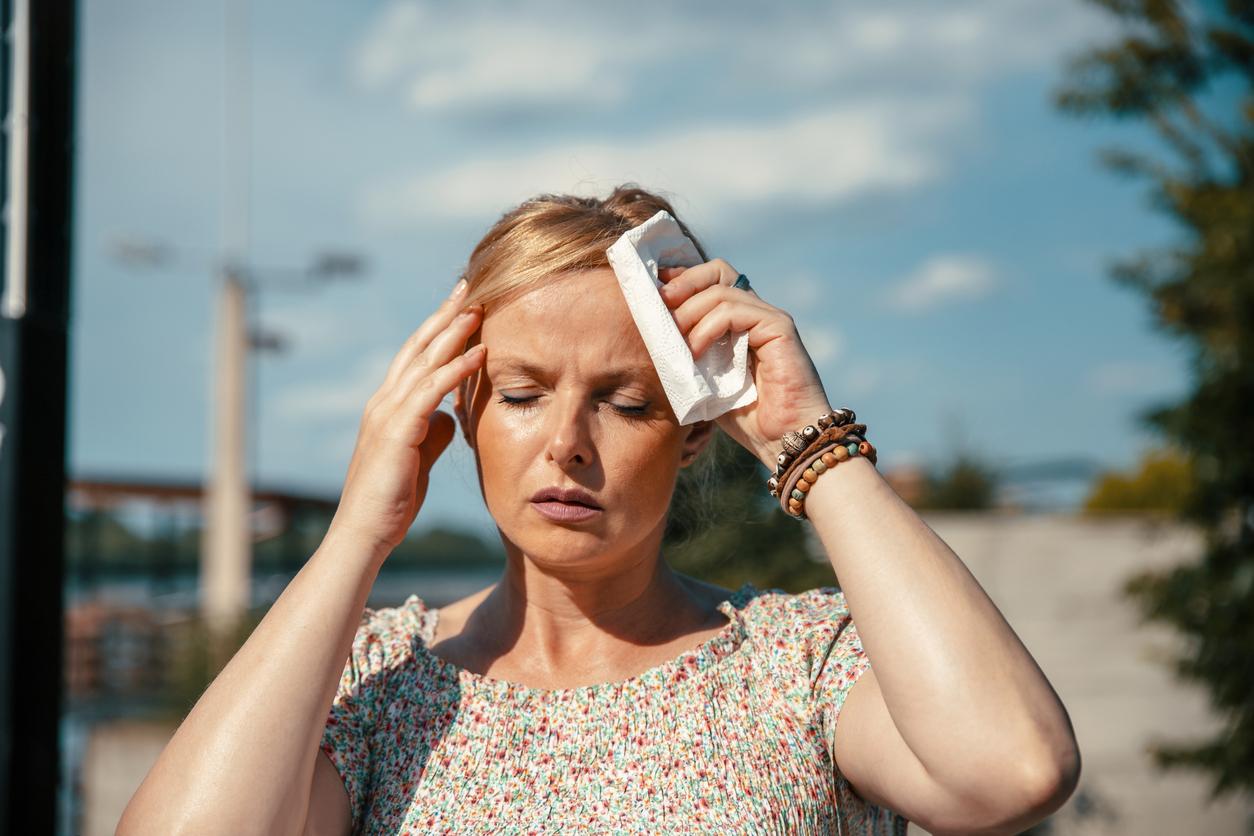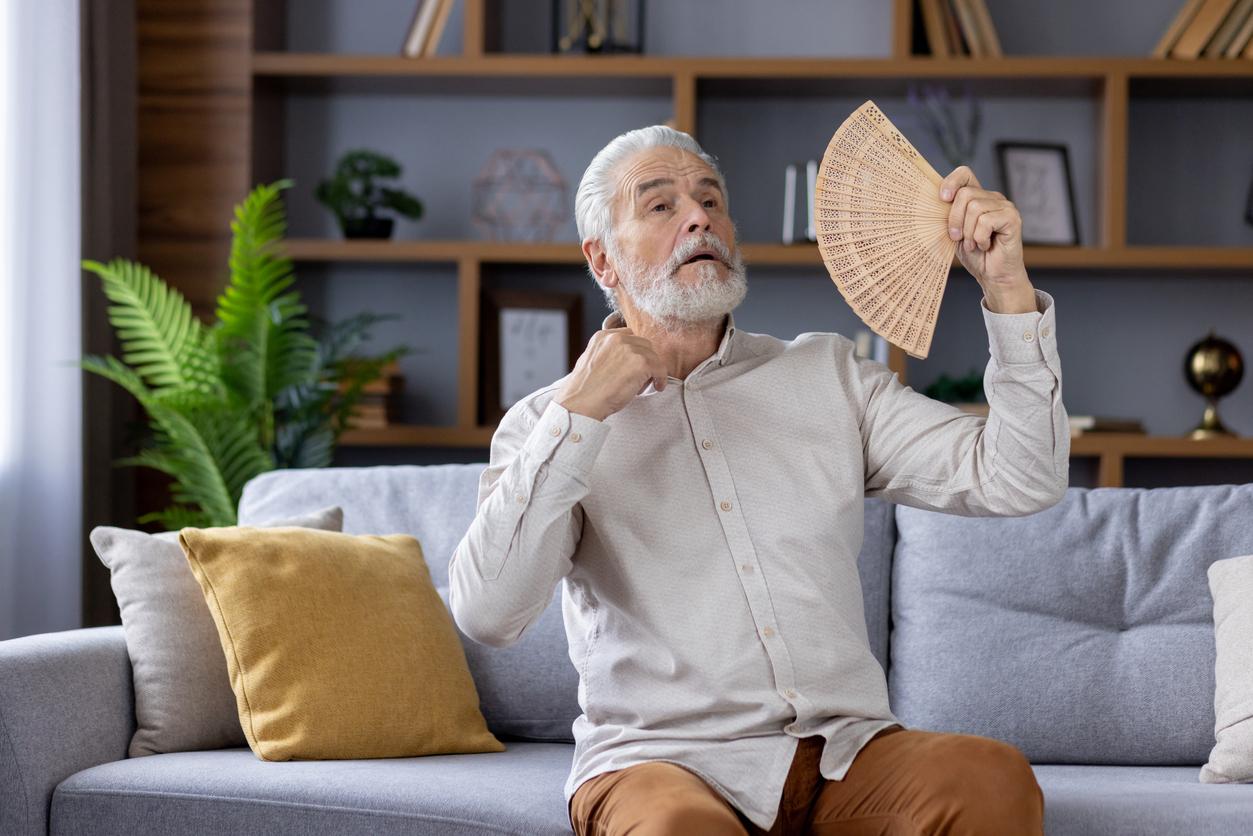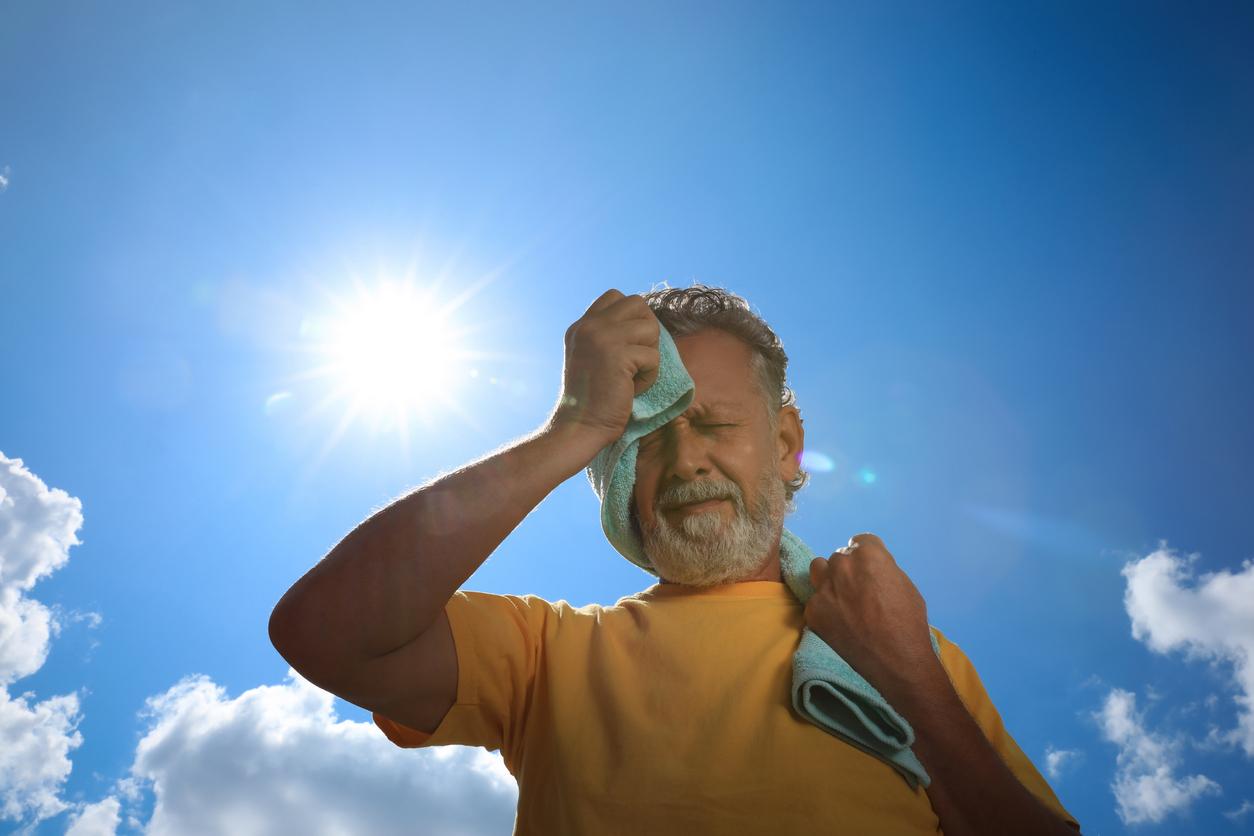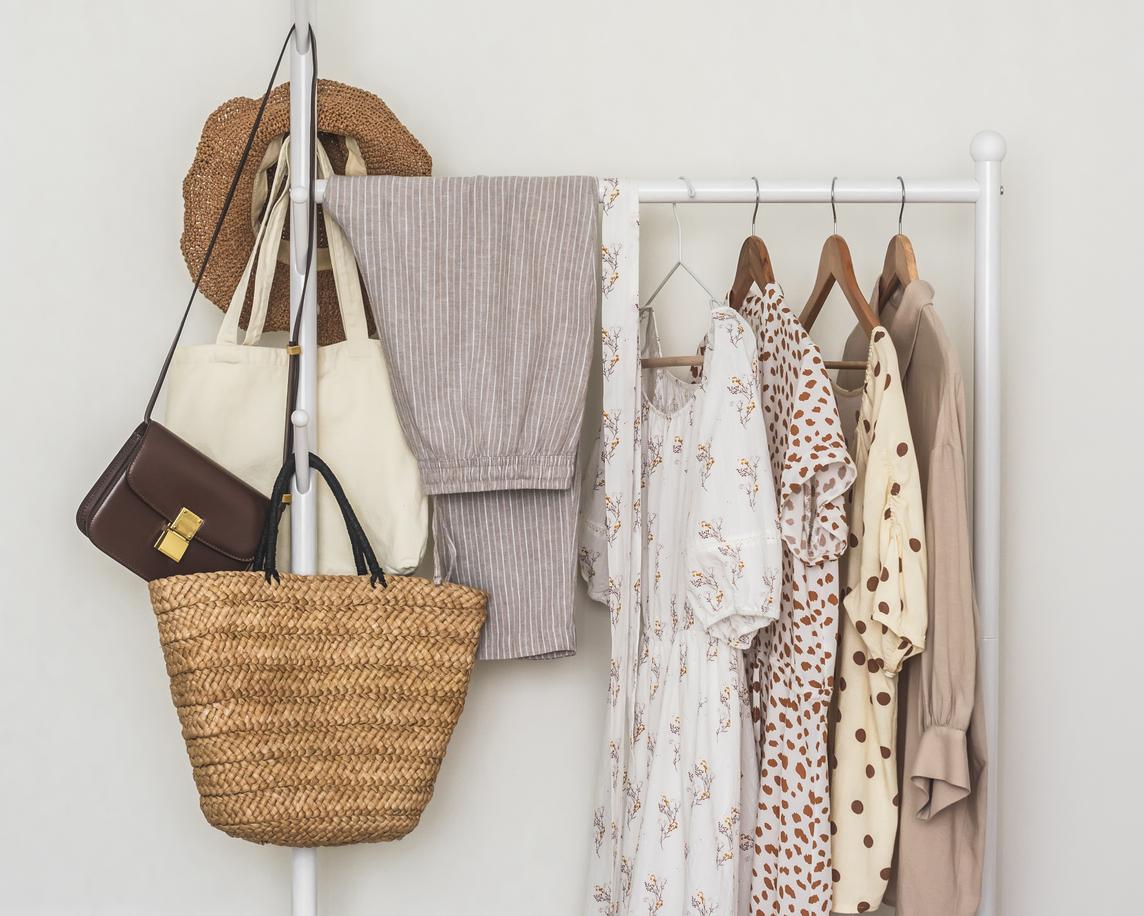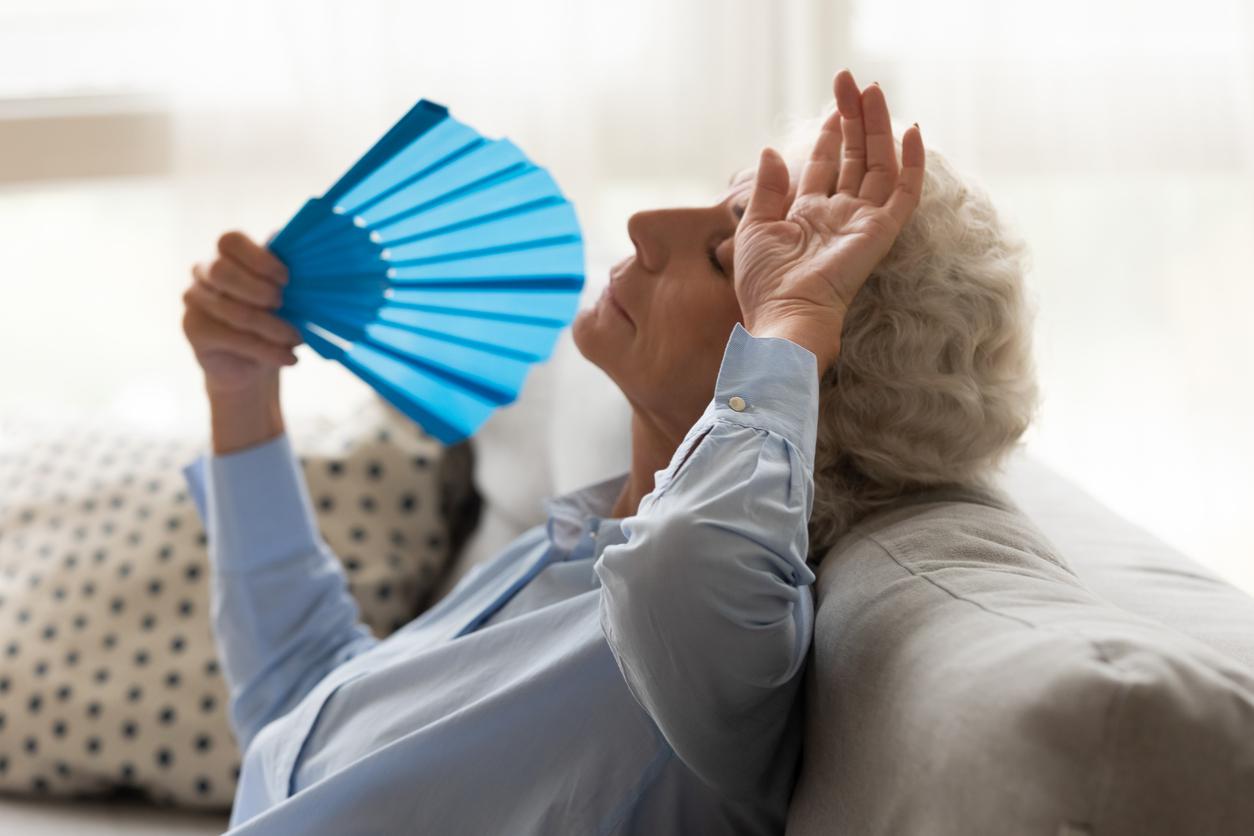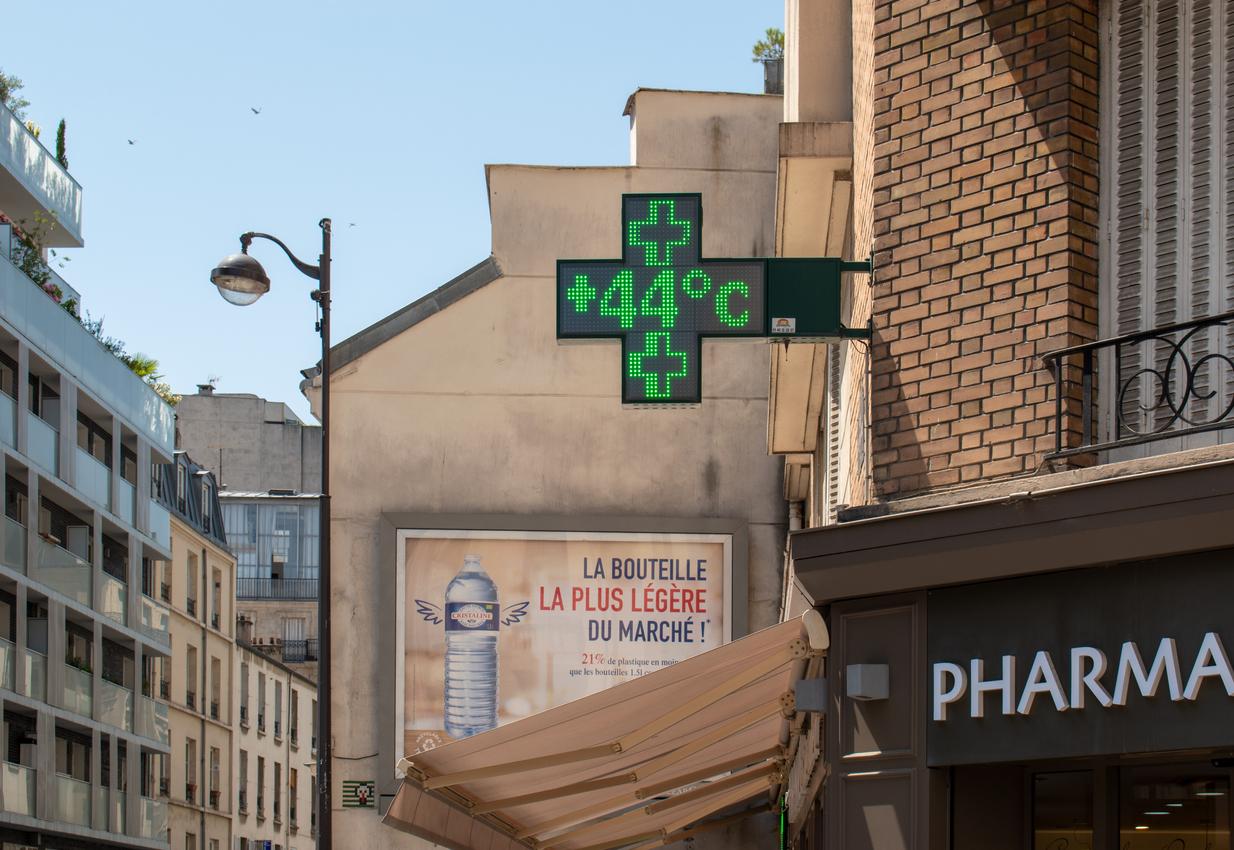
Prevent dehydration and large temperature differences
Extreme heat is no longer an exception in the Netherlands. And although most of us can withstand a little heat, it is wise for everyone to take a number of measures when temperatures are above 30 degrees. So that you can continue to enjoy nice weather.
When we think of measures in the event of heat, we mainly think of vulnerable elderly people with chronic diseases. But do these heat tips also apply to vital elderly people? A lot of advice seems rather silly. Of course you don’t wear a sweater when it’s 30 degrees outside and you close the curtains during the day. However, longer periods with temperatures above 25 degrees can be tough for everyone. Professor of geriatric medicine Jos Schols was involved in the National Heat Plan and believes that from around 35 degrees and a humidity of over 50 percent everyone is at risk of heat stress. “Healthy, young people too. Heat is top sport for your body.” As you get older, it is more difficult to stay at the right temperature, explains Schols: “You are less thirsty, your kidneys work less well, you sweat less, your skin becomes thinner and your heart and lungs have less to keep up with. All reasons why your body can’t handle heat as well.” There are big personal differences: “Some people are more likely to suffer. But we also know that some people don’t ask for help and overestimate themselves.” So an important question for everyone: how do you help your body in heat?
1. Prevent dehydration and large temperature differences
Drink more: it sounds so logical, when you are thirsty you should drink more. However, this is not so obvious in old age. “In people over the age of 70, the thirst stimulus of the body works less well,” says Schols. “This will keep you from feeling thirsty and you might forget to drink those six to eight glasses of fluids you need in hot weather. So rely more on outside stimuli, especially if you’re a little distracted.” You can drink at fixed times (every hour) or at fixed times in your daily routine, such as every meal. “An alarm in your phone might also help,” Schols thinks. know when it’s time for a drink.” Take a bottle of water with you and drink, even if you are not thirsty.
Careful with air conditioning: nowadays our cars have air conditioning and some houses too. That can make a lot of difference in the heat and make life a lot more bearable, but we shouldn’t overdo it either. “Excessively large temperature differences demand a lot from our bodies,” explains Schols. “So don’t set the air conditioning to 18 while it’s 32 degrees outside. Then when you go outside, you get a much too big blow. Your body has to adapt suddenly and that can lead to fainting or low blood pressure. Not good for people with cardiovascular problems.” You can cool your car quite a bit, but then turn the air conditioning back to a slightly higher temperature, so that the differences are not too great.
What are the symptoms of overheating dehydration?
- severe thirst
- A feeling of exhaustion
- Concentration problems
- Dizziness/irritability
- Nausea/vomiting
- Headache
- Muscle cramps
- Fast pulse
- What to do? Drink plenty of water and eat or drink some salt, such as broth. Get out of the sun and find some coolness (for example, somewhere with a breeze).
Source: GGD Amsterdam
What is a heat wave?
In the Netherlands, a heat wave is a sequence of at least five summer days (maximum temperature 25.0 °C or higher), of which at least three are tropical days (maximum temperature 30.0 °C or higher).
2. Drugs and Heat
Medicines are often tailored to your body in normal condition. But with heat it can happen that some medicines cause unwanted side effects. For example, water tablets and laxatives can negatively affect your fluid balance and cause you to become dehydrated more quickly and become unwell. Certain medications for Parkinson’s and psychosis can also have a negative effect, because they make you sweat less. “Pay attention to the correct use of your medication is therefore very important during periods of heat”, Schols tips. He thinks a warning is in order: “Never tinker with the medication yourself, but consult your pharmacist or doctor.” He also points out possible side effects of soothing medicines, such as certain sleeping pills or medicines for depression or psychosis. “These affect your ability to react and as a result you can react less alertly to situations in which you should take better care of yourself. Like when you should get out of the sun or drink more.” Heat can also reduce the effectiveness of drugs. As a result, you still get too little of your medication with your trusted dose. Therefore, keep them cool, below 25 degrees. Not in a damp bathroom and not in your pocket. Do you pick up medicines at the pharmacy or are you on the road? In that case, bring a cooler bag for medicines that need to be kept in the fridge. Go straight home and don’t leave them in a hot car.
Tips for persistent heat
- Keep the house cool inside
- Use a sunscreen or close the curtains
- Drink enough (no alcohol)
- Keep yourself cool with water and wind
- Stay out of the sun and protect the skin
- Avoid effort
- Take care of yourself and someone else
Source: GGD Amsterdam
3. Nutrition and hygiene
- Eat less more often: Schols recommends eating several easily digestible, small meals during heat periods. “When you eat a heavy meal, your body then needs all its energy to digest the food. While it also needs energy to keep your body at the right temperature and to dissipate excess heat.” Fruits and vegetables are always good, but especially good in the summer. They provide moisture and are a source of vitamins and salts.
- Pay attention to hygiene: extra hygiene when preparing food is in order, because vomiting and diarrhea can cause you to dehydrate even faster. Wash your hands with soap, wash vegetables and fruit before eating them and make sure you cook meat, eggs and fish well and do not let raw meat and fish come into contact with prepared food.
4. Protect your skin and eyes
Our skin begins to age from about age 30. A pity, but a natural process, explains Schols: “The skin becomes thinner, loses water, connective tissue and sebaceous glands. You will notice that this makes it feel rougher and drier and more wrinkles are visible.” There’s nothing you can do about it, although the skin does age faster if you smoke or spend a lot of time in the sun, so your skin could use some extra protection. It’s easiest to avoid the sun on hot days when it’s at its strongest. between 12 noon and 5 pm Still in the sun Cover your head with a sun hat or visor and use a sunscreen with a factor of 50. We often forget about the ears and eyelids when applying sunscreen, so pay attention, because these can also burn badly. Sunglasses with a good UV filter reduce the risk of cataracts. Schols: “The most logical advice is to seek out as many shady places as possible.” You can also slowly let your skin get used to the sun every day in the course of spring, then the chance of sunburn is less.Some people do this with a tanning bed, but it is good to realize that tanning beds are just as harmful to your skin like the sun and also accelerate the aging process.
5. Don’t forget to enjoy
After all these warnings you would almost forget how pleasant the sun can be. The skin produces vitamin D when it is exposed to sunlight, which is important for healthy bones and teeth and keeps your muscles strong. It also contributes to a good resistance. The light, the warmth on your skin, it also gives us a feeling of freedom and happiness. It makes us feel good, we can go out: relax, what more could you want. We must also continue to enjoy all of this to the fullest, and that is certainly possible if we go into the sun in a sensible way.
heat stroke
1. What is heat stroke?
You can recognize heat stroke by: sudden unconsciousness, sometimes muscle twitching and/or shocks of the body, a strongly rising body temperature (above 41 degrees Celsius), a dry, warm and red skin and no visible sweat.
2. What can you do?
In case of heat stroke, you must immediately call the ambulance service (112) for emergency care. In addition, you should immediately lower the body temperature by ventilating, putting the person in the shade and cooling the skin with water or wet towels.
3. What are the vulnerable groups?
People over 65, people with poor health or chronic diseases, residents of nursing and care homes, people with cardiovascular and lung disorders and/or diabetes, babies and toddlers, athletes and people who exercise heavily.
This article previously appeared in the summer issue of Plus Magazine July/August 2020. Not yet a Plus Magazine subscriber? Becoming a subscriber is done in no time!










